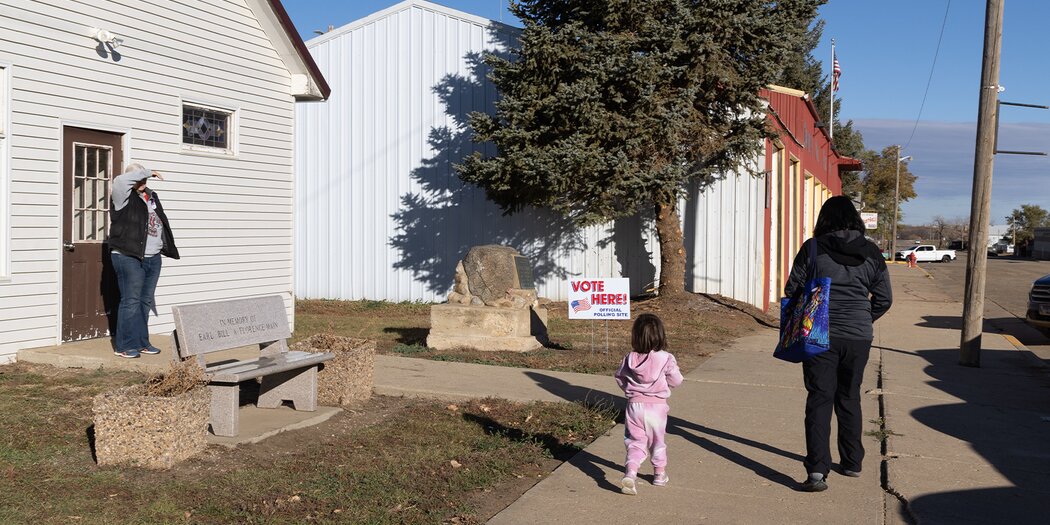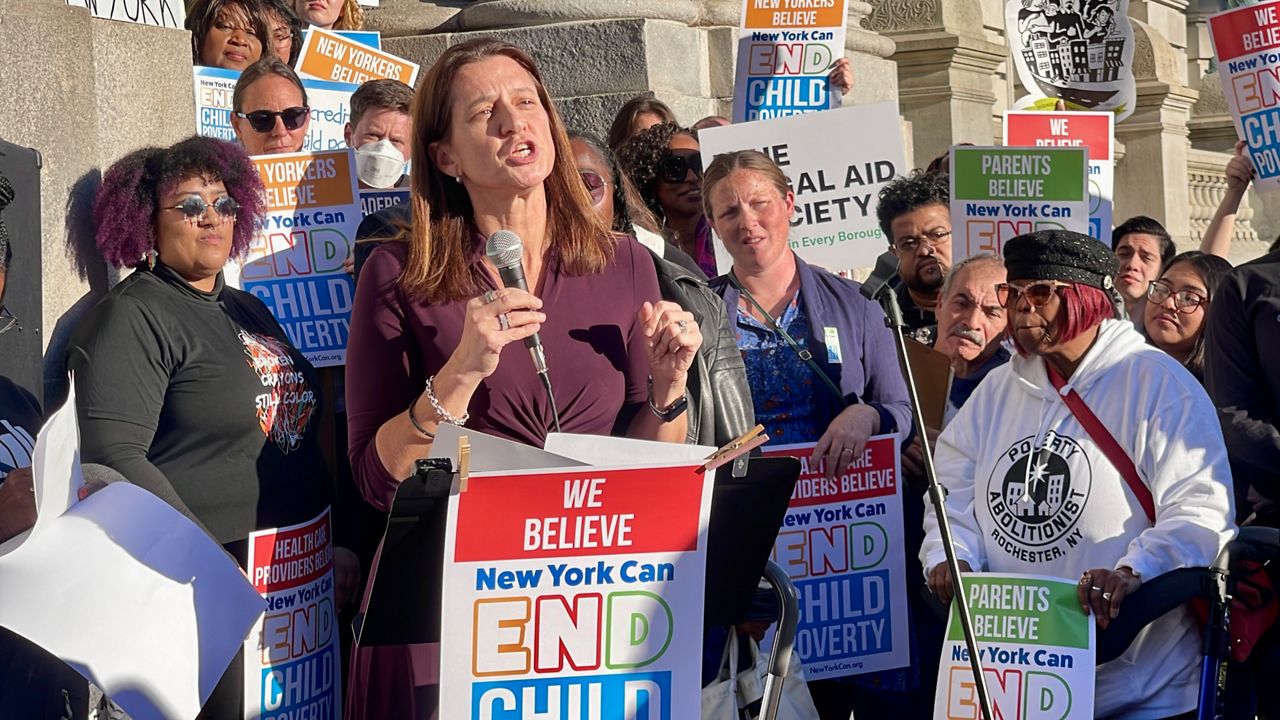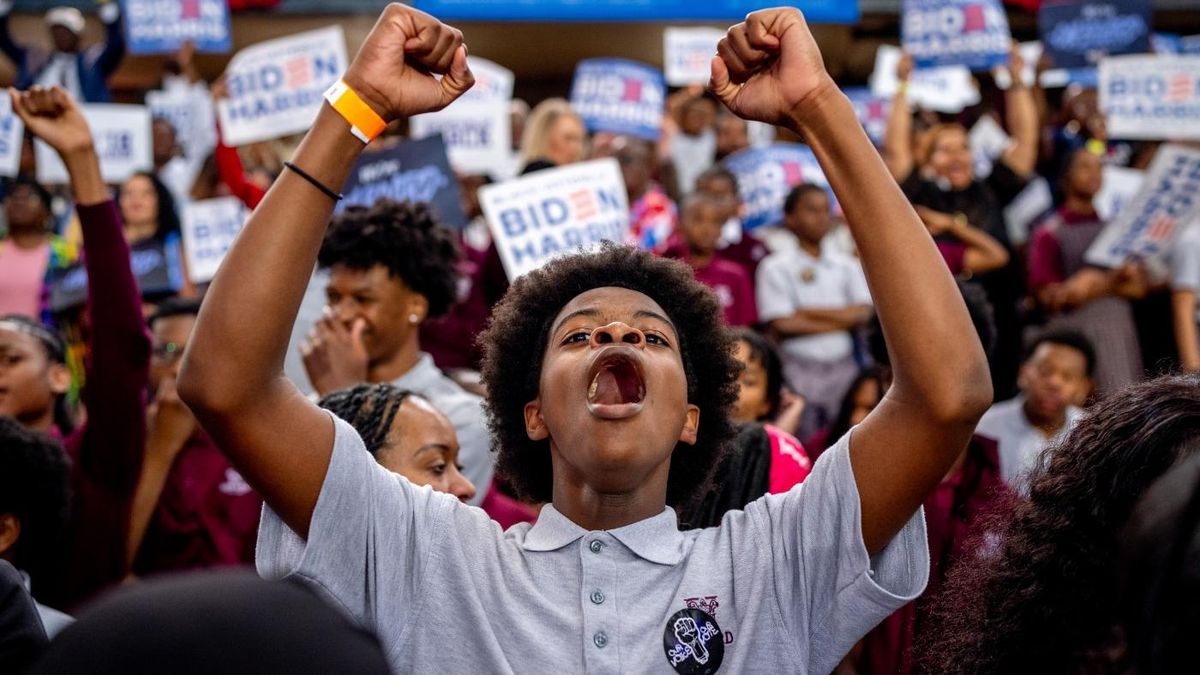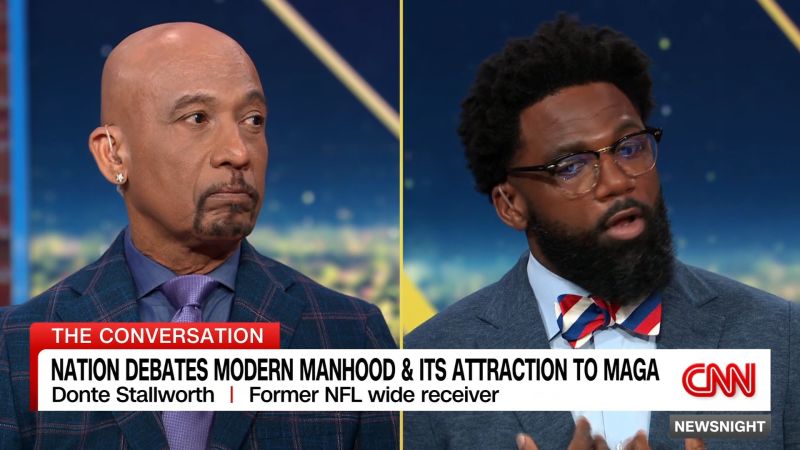- BlackVoter.Org
- Posts
- BLACKVOTER.ORG
BLACKVOTER.ORG

The Brennan Center for Justice highlights a troubling reality: Native American voter turnout lags significantly behind that of other demographics, with a staggering 11% disparity observed from 2012 to 2022 across tribal lands. Historical injustices and continuing disenfranchisement contribute to this gap, with logistical barriers such as difficult access to polling places, lack of mail services, and inadequate voter ID laws compounding the challenges faced by Indigenous voters.
Many living on tribal lands grapple with socioeconomic struggles, further diminishing their political participation. This report underscores the urgent need for federal and state governments to step up and ensure equal access to the ballot for Native American communities, who have historically been marginalized in the electoral process.
With advocacy for voting reform, the hope is to empower these communities and strengthen their representation in democracy.

A powerful push is underway in New York to expand the Child Tax Credit as part of a broader initiative to tackle the state's startling child poverty rate, which affects nearly one in five children. The Child Poverty Reduction Advisory Council is set to present its recommendations, advocating for an increase in the tax credit from $330 to a generous $1,500 per child, along with expanded housing subsidies and public assistance programs.
Rallying for the cause, advocates and lawmakers emphasize that with a wealth of resources in the state, it's a moral failure to allow so many children to live in poverty. "People are the best arbiters of their own finances," notes advocate Joseph Jones, stressing that financial support is crucial for making real change.
As the council finalizes its report ahead of the legislative budget season, pressure mounts on state leaders to act swiftly and decisively to break the chains of poverty for New York's children.

Candace Owens is no stranger to celebrity feuds, frequently sparking controversy with her outspoken political views. From her scathing remarks about Beyoncé’s authenticity to her harsh critiques of Lizzo's body positivity messages, Owens has ruffled feathers across the entertainment industry.
She's taken on a roster of high-profile stars, including Cardi B, T.I.
, and Harry Styles, often igniting fierce Twitter battles. Known for calling out what she perceives as “pandering” or the “feminization of men,” Owens is unapologetic about her polarizing opinions.
Each confrontation seems to escalate into public narratives, drawing in passionate fanbases on both sides. Billboard examines Owens’ biggest confrontations—tracing her relentless pursuit of debate and the responses that follow—highlighting her role as a provocateur in modern pop culture.

Following Donald Trump's surprising victory in the 2024 election, media figures experienced emotional meltdowns that captivated and shocked audiences. Late-night hosts like Jimmy Kimmel and Stephen Colbert choked up on air, lamenting the implications of Trump’s win for various voter groups.
Kimmel called it a "terrible night," while Colbert critiqued the electorate's choices. Other pundits echoed sentiments of despair; CBS's John Dickerson tearfully reflected on the impact on the youth, and MSNBC's Stephanie Ruhle warned about misinformation's sway.
The hosts of "The View" voiced outrage over Vice President Kamala Harris's loss, with Joy Behar calling the result "pathetic." CNN's Van Jones and several others pointed to broader issues of racism and misogyny among voters that they believed contributed to the election outcome.
With emotions running high, the media’s responses became a spectacle of its own, highlighting a deep divide in American political sentiment.

The 2024 Presidential Election has revealed a notable shift in Black voter sentiments, especially among Black men who turned to Donald Trump’s campaign, granting him 21% of their votes—a slight rise from 2019. This shift unveils a pressing concern for the Democratic Party, particularly for Kamala Harris, who struggled to connect with this critical demographic despite her historic candidacy.
Critics argue that Democrats have overlooked Black men's specific needs, focusing instead on broader identity politics. Many voters expressed feelings of neglect, prompting calls for genuine investment and dialogue from traditional allies.
Trump's messaging on fatherhood and family values resonated deeply, suggesting a need for Democrats to address these personal convictions. As party loyalty hangs in the balance, the Democrats must rethink their strategies to engage meaningfully with Black communities if they wish to reclaim support and navigate upcoming electoral challenges.
This election marks a pivotal moment, urging leaders to prioritize accountability and authentic connections.

In an inspiring tale, Tennessee State Rep. Gabby Salinas, elected in November 2024, shares how her political journey took root during a personal battle with cancer at just seven years old.
Growing up in Memphis, Salinas channeled her early experiences as a patient into a passion for advocacy, fueled by a desire to make a difference in her community. Her dedication ultimately led her to the Tennessee General Assembly, where she aims to represent the voices of her constituents and tackle pressing issues.
Salinas's story is a testament to resilience and the power of personal experiences in shaping leaders who genuinely care about the future of their communities.

Why are young men flocking to President-elect Trump? A recent CNN discussion dives into this intriguing trend, highlighting a surge of support among younger males for the MAGA movement. Analysts suggest that Democratic narratives around masculinity might be pushing these men towards Trump, who positions himself as a champion of traditional values.
This shift reflects broader cultural and social pressures, where many feel their identities are under attack. As discussions heat up, there’s a palpable excitement in the air, with young men declaring their allegiance to Trump's brand of leadership.
Will this be a lasting trend, or merely a response to current political dynamics? It’s a fascinating look at how identity and party allegiance intertwine, challenging expectations in the political landscape.

Tony E. Carey Jr.
, an associate professor at the University of Pittsburgh, has recently been honored with the prestigious Adaljiza Sosa-Riddell Mentor Award from the American Political Science Association. This accolade celebrates his outstanding mentorship of Latino students and junior faculty, recognizing his dedication to fostering diversity within the field of political science.
Before joining Pitt, Carey distinguished himself at the University of North Texas, where he co-founded the Center for Racial and Ethnic Equity in Health and Society. Specializing in public opinion and political behavior, Carey’s expertise spans African American politics, gender politics, and political psychology, with contributions to leading academic journals.
As he continues to inspire the next generation of political scientists, Carey exemplifies the values of mentorship and inclusivity in academia.

The Southern Christian Leadership Conference (SCLC), founded in 1957 by the influential Reverend Martin Luther King, Jr., emerged as a pivotal force in the American civil rights movement.
Based in Atlanta, Georgia, this nonsectarian organization united activists to champion equality and address injustices faced by African Americans. The SCLC spearheaded significant initiatives like voter-registration drives and leadership training, playing an essential role in landmark events such as the march on Washington in 1963 and critical campaigns in Albany, Birmingham, and Selma, which ultimately paved the way for the Civil Rights Act of 1964 and the Voting Rights Act of 1965.
Following King’s tragic assassination in 1968, the SCLC continued its mission of nonviolent social change, though it faced challenges and schisms along the way. Despite these struggles, the organization remains dedicated to empowering African American communities and honoring King’s legacy, including advocating for Martin Luther King Jr.
Day.

In a surprising election twist, Kamala Harris faced a staggering defeat against Donald Trump, losing not just the presidency but also key battleground states. Despite a substantial Democratic campaign budget, Harris's popular vote fell significantly short, leaving many to question her ability to resonate with voters.
While narratives of sexism and racism surfaced, deeper issues came into play: a lack of compelling policies, a perceived disconnection from pressing economic concerns, and Trump's undeniable talent for political maneuvering. The election highlighted demographic shifts, with Trump attracting more support from Latino and Black communities than anticipated.
Harris's campaign struggled to articulate a clear vision distinct from Biden’s, leading to an impression of emptiness. Political analysts point out that the Democratic Party needs to recalibrate its strategies to engage a diverse electorate, focusing on the real issues Americans face daily, rather than lofty ideals.
The Democrats’ self-inflicted wounds raised alarms about the party's future and relevance.

